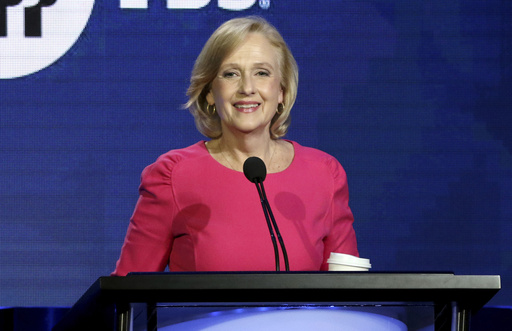
PBS is set to close its diversity, equity, and inclusion (DEI) office in response to an executive order from former President Donald Trump. This decision involves the termination of executives Cecilia Loving and Gina Leow, who were hired in 2021 to lead the initiative.
This shift occurs as public television and radio brace themselves for a potentially daunting battle over federal funding, a challenge that could be more intense than they have encountered in recent years. Despite the dismantling of the DEI office, PBS CEO Paula Kerger emphasized the network’s ongoing commitment to represent all American stories, both before and after the closure of the office.
PBS receives federal funding from the U.S. Department of Education and the National Science Foundation, which supports its children’s programming. As Kerger explained, the organization’s legal team concluded that adherence to Trump’s order was necessary to retain this funding. PBS secures about $535 million in general government support, accounting for roughly 16% of its overall budget. However, due to the funding being channeled through the Corporation for Public Broadcasting (CPB), the need for compliance remains somewhat ambiguous.
Individual PBS member stations, of which there are 330, may have their own DEI initiatives and also receive CPB funding. The future of these programs will depend on the decisions made by the respective stations. Kerger mentioned efforts to guide them in consulting their legal teams regarding their specific situations.
Reports suggest that PBS initially explored the possibility of relocating Loving and Leow to other positions within the organization, but this option was ultimately dismissed. The DEI office’s objectives encompassed a broader scope than racial equity, including initiatives aimed at ensuring access to programming for children with hearing impairments.
Four years prior, PBS faced scrutiny from over 130 filmmakers, who expressed concerns that its association with documentarian Ken Burns was hindering the representation of diverse voices. They characterized it as a systemic failure to uphold the network’s mandate for diversity.
Amid current cuts to federal spending proposed by the Trump administration, Kerger recognizes that public broadcasting is under greater scrutiny than in the past. U.S. Senator Mike Lee voiced a call on social media to defund PBS and NPR, echoing a recurring sentiment among some Republicans who argue that the programming leans left. Past attempts to cut PBS funding have typically faltered due to lobbying efforts from numerous local stations across the country.
Kerger and officials from NPR are scheduled to testify before the House Oversight and Government Reform Committee next month. She highlighted the heightened scrutiny, stating, “I never assume that government funding will continue… we have to advocate for our importance every time these discussions arise.”
The perceived bias in news coverage is a concern for many; individuals may feel that their viewpoints are not represented, leading to perceptions of either conservatism or liberalism in storytelling. Kerger acknowledged the importance of addressing these complaints diligently and correcting any missteps.
She pointed out examples like local stations providing crucial updates during California wildfires and hurricanes in Florida, indicating the tangible benefits of public broadcasting that legislators must recognize. “I remain optimistic, but I believe we will need numerous discussions to maintain our funding levels that allow our stations to operate effectively,” Kerger concluded.

